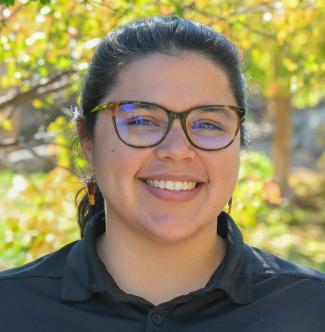2022 Fall Seminar Series Presents
Dr. Sofia Prado-Irwin
Graduate and Adult Programs Coordinator
Denver Zoological Foundation, Field Conservation Department
WHEN: November 4, 2022, at Noon
WHERE: Seminar will be presented via Zoom and also in person in the North Classroom, Room 1207.
Please email jacki.craig@ucdenver.edu to receive the Zoom Meeting Link. Requests can be submitted any time before the Seminar but not after 10:00am the day of the seminar.
Phylogeography and Signal Evolution in a Widespread Central American Anole
Anolis lizards are an excellent model system in which to study countless evolutionary and ecological questions, and they have been quite well-studied over the last century. Despite this rich body of research, many unknowns about anole evolution remain. In this talk, I will share my work in two areas of anole biology that have plenty of room for exploration and discovery: evolution of mainland anoles and signal evolution.
Most work on anole evolution and ecology has been conducted on anoles in the Caribbean islands, while research on evolution and diversification of mainland species (those in Central and South America) has generally lagged behind. My work has focused on understanding the evolutionary history of one widespread species complex that occurs throughout Central America: Anolis lemurinus and its close relatives. Phylogenetic and population genetic analyses of the A. lemurinus clade have revealed substantial divergence on both species and population levels, with significant implications for their taxonomy.
While conducting this work on A. lemurinus phylogeography, I also discovered a novel pattern of color variation in the A. lemurinus dewlap, the primary signaling organ in anoles. The dewlap is an extendable flap of skin under the chin that individuals use in many social and ecological contexts. Dewlap color varies across species; within a species, male dewlaps tend to be much larger and showier, with females exhibiting diminutive versions of male dewlaps. In the A. lemurinus group however, female anoles both within and across species show significant variation in dewlap color, while males hardly vary at all. Such a pattern is unique among anoles, and brings up many questions about signal function and evolution in females, an oft-overlooked field of study. We still don’t understand the evolutionary forces that produced this pattern, but this species could lead to great new insights on the evolution of the dewlap in anoles.
Everyone is welcome to join the seminar, please email jacki.craig@ucdenver.edu to receive the Zoom link. Requests can be submitted any time before the seminar but not after 10:00am the day of the seminar.

